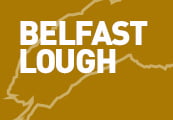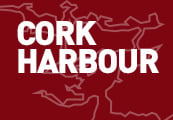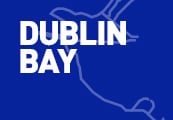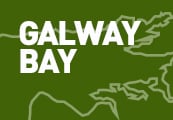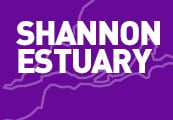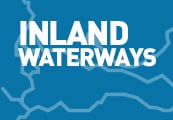Displaying items by tag: Sara Feeney and Ellen Glynn
‘It Was Horrible to Be Out There’: Galway Cousins Share the Story of Their Harrowing Paddle Board Ordeal
In the first of three extracts from Lorna Siggins’ new book, Search and Rescue, the journalist and regular Afloat.ie contributor recounts the harrowing ordeal of two Galway cousins, Sara Feeney and Ellen Glynn, who were reported missing on 12 August 2020 after they went paddle boarding off Furbo beach in Co Galway…
Air temperatures of around 18 degrees had fallen to 15 degrees during the night. Even though the sea was warm – at around 18 degrees – the estimates for survival at sea in normal clothing would be around twenty hours. The two women weren’t aware of this, but they were well aware of their vulnerability in bikinis and lifejackets.
Ellen was worried about her own lack of tolerance for cold, but the water had been warm that evening. They kept checking the shore lights, paddling and waiting, and still feeling bad about ‘all the hassle we were causing’.
Neither wanted to say what they really thought. Ellen, who was a little stressed, felt an uncontrollable urge to burst into song. She belted out the lyrics of Taylor Swift’s ‘Exile’. ‘At first I’d say Sara thought I was a bit insane,’ she said later. ‘But she just sorta started singing along … it was a distraction … that was just before the first boat came.’
Sara recalled: ‘We definitely knew there was activity and people looking for us. At one point, a boat lit a flare close to us to signal to the helicopter … We thought they would pick up the reflective strips on the boards, or on our buoyancy aids. … Not long after that, we saw the first helicopter. It felt like they were very close … You get that initial sense of relief and then … we would scream and roar and no one could hear.’
They continued to paddle, all the while straining to identify the lights on the shore. In the downdraught caused by the helicopters and the wash from searching vessels, they struggled at times to stay on the boards. Ellen had fallen off once already, earlier in the night. Instinctively sensing they needed to keep their spirits up, they chatted about what they would most like to do when they arrived back. Ellen said she was really looking forward to a hot shower and getting into comfy pyjamas. They talked about how lucky they were to have their lifejackets on, how people were looking for them, how they were going to be found and how everything would be fine.
 Father and son Patrick and Morgan Oliver, who rescued Ellen Glynn and Sara Feeney after they were found off Inis Oírr in August 2020. With the Olivers are Galway RNLI lifeboat crew members (from left to right) Olivia Byrne, Sean King, Ian O’Gorman, Cathal Byrne, Stefanie Carr, Declan Killilea and Lisa McDonagh who were out all night on the search | Credit: Joe O’Shaughnessy
Father and son Patrick and Morgan Oliver, who rescued Ellen Glynn and Sara Feeney after they were found off Inis Oírr in August 2020. With the Olivers are Galway RNLI lifeboat crew members (from left to right) Olivia Byrne, Sean King, Ian O’Gorman, Cathal Byrne, Stefanie Carr, Declan Killilea and Lisa McDonagh who were out all night on the search | Credit: Joe O’Shaughnessy
Ellen remembered at one point thinking about how cold it must be for those sleeping out every night with no homes to go to. She only had to be ‘there for one night’, she told herself. The line from ‘Exile’ about seeing ‘this film before’ and not liking the ending kept looping around in her head, and she sent silent mind messages to her mum, reassuring her that she was okay.
While on the water, they witnessed the meteor shower and marvelled at bioluminescent light for a time as the seas were lit up by the chemical reactions of millions of tiny marine organisms.
‘So I remember, when we saw the shooting stars, I’d always wanted to see them, so I thought that was really cool, and then the plankton in the water,’ Ellen said. ‘They’d been in the water a year before that, and I didn’t get to see them, so I was kind of thinking in my head, “Am I getting to see all this stuff now because I’m going to die?”’
Sara said: ‘With the meteor shower, between the two of us there was some amount of wishes made. To be honest, I’d sacrifice a meteor shower and bioluminescence just to get home safe...We were singing, talking, anything we could to keep our moods up. If fear was seeping in, one of us would reassure the other...
‘It was horrible to be out there and realise everyone would be worried sick, and it felt really awful that everyone spent so many hours looking for us. I think if we had panicked at all, things could have been very different. I know if Ellen had panicked, I would have found it very difficult.’
The weather deteriorated and the rain was so heavy that it hurt. They had stopped seeing any lights of vessels, any search activity now. Their last sight of a helicopter was just before the lightning storm at around 4.20 a.m. When the aircraft flew off, they knew they would have to stick it out to first light.
At that point, Sara had a clear memory of being enveloped in a fear that she could not articulate, knowing the impact any mention of this might have on her cousin: ‘The chances aren’t too good for you if the helicopter couldn’t be out in those conditions … you know … because the size of the helicopter compared to us and all we have is the boards … You see the helicopter going in, because of the stormy weather, and that didn’t bode well for us. We didn’t even verbalise what might happen, or what we might both be thinking. Ellen probably had total understanding of what was going on, but neither of us really communicated that to each other … we didn’t really say that out loud at the time. If we had started talking like that, it was just another level of hopelessness we didn’t need.’
 The Galway RNLI inshore lifeboat returning after the cousins were found on their paddle boards off the Aran island of Inis Oírr | Credit: Joe O’Shaughnessy
The Galway RNLI inshore lifeboat returning after the cousins were found on their paddle boards off the Aran island of Inis Oírr | Credit: Joe O’Shaughnessy
They lay down on the boards, trying to stay as stable as possible in waves of up to 2 metres in height, hoping they could just wait the night out. Ellen thought they were being carried towards Kinvara, though she wasn’t sure.
Sara had a sense her cousin might be falling asleep, so she played word games with her to keep her alert and urged her to kick her legs every so often to keep warm.
***
The Galway RNLI crew came alongside Barna pier during the night for extra fuel and a crew change. By 5 a.m. local fishing vessels were out.
Back on Cappagh road, the light came on in Mary Feeney’s bedroom, waking her and her husband, Tommy. Her eldest, Karen, and youngest, Donal, were at the foot of her bed. They explained that they had some news. Her two granddaughters were missing at sea. As she tried to make sense of the information, Mary remembered giving Karen and Donal a couple of lamps to take back out with them.
Back in Galway lifeboat station, co-ordinator Mike Swan arrived around 6 a.m. to check in with his colleague Barry Heskin, who had been on duty throughout the night. The situation was not looking good, given the night’s bad weather on the bay. Some of the lifeboat crew who had been out in the early hours had crashed in chairs or were lying on the pool table to grab some sleep. Breakfast rolls had sustained them during a long night at sea and Swan had organised a box of the same for colleagues on the RNLI Aran lifeboat.
Sailor and yacht chandler Pierce Purcell received an early morning call and set his energies to putting the word out among the sailing clubs, while the family put out posts on social media, appealing for help. Several fishing vessels contacted John O’Donnell on the Aran lifeboat to get advice on where to search. Ferries serving the Aran Islands based in Doolin and in Ros-a-Mhíl also declared they would assist. Several private pilots – John Kiely and Patrick Curran – joined in with a light plane and helicopter respectively, as did Aer Arann on its routine flights between Indreabhán and the islands.
 An Irish Coast Guard S-92 landing at University Hospital Galway with cousins Ellen Glynn and Sara Feeney on board, after they were flown from Inis Oírr | Credit: Joe O’Shaughnessy
An Irish Coast Guard S-92 landing at University Hospital Galway with cousins Ellen Glynn and Sara Feeney on board, after they were flown from Inis Oírr | Credit: Joe O’Shaughnessy
‘We took one of our ferries out from Doolin at 9 a.m. – the Jack B – with Captain James Fennell, my nephew Martin Garrihy and myself on board. Island Ferries was also searching in between sailings out of Ros-a-Mhíl, and Bill O’Brien of Doolin Ferries,’ Donie Garrihy said.
‘We scoured around Inis Oírr and were then told to search between Inis Oírr and Inis Meáin as far down as the lighthouse, and then got a call to double back up from Inis Oírr towards Spiddal.’
The Oranmore-Maree Coastal Search Unit became involved, as did the Marine Institute. The institute had expertise in modelling, combining tide, currents and weather to predict drift patterns on the bay. Over the first daylight hours, there were a number of reported sightings: several kayakers out searching and several objects that turned out to be lobster pots were mistaken for the paddleboarders.
Galway Bay’s name belies a sea area as large as the county. As Mike Swan explained later: ‘It is like driving from Galway east to Ballinasloe, and then searching from Loughrea in the south-east to Athenry to the north-west … a big area, a load of fields, and then you are looking for two girls and it’s night-time. If there’s a wave at all and someone is 100 metres away, there’s no way in hell you’re gonna see them … you only see them when you’re on the top of the wave … and you must remember too that the boat they’re in might be on the bottom of the wave. So it is all about searching slowly and methodically …’
Friends, relatives and people who didn’t know the families drove many miles to join the search, some having left their homes in the middle of the night. Deirdre was aware of her daughter’s resilience, and the fact that both young women were, as her sister Helen put it, two smart, sensible girls. She had an inexplicably strong sense of hope and, for some reason, she couldn’t get a Taylor Swift song out of her head.
From Chapter 17, “Why aren’t they turning around?”. Search and Rescue: True Stories of Irish Air-Sea Rescues and the Loss of R116 by Lorna Siggins is published by Merrion Press, €16.95/£14.99 PBK.

